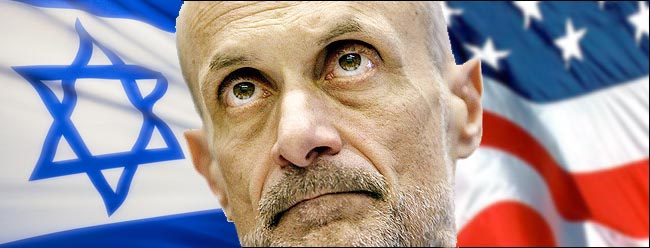 Dual Citizenship -- Loyal to Whom?
Dual Citizenship -- Loyal to Whom?
by Dan Eden
Please also see Omert Humiliates America and Who Controls Hollywood and the Media?.
Someone wrote and asked me, "Why are there Israeli- but not Mexican-American Dual Nationals?"
Well, here's my take on this. I'd also like your views and opinions.
Before I begin I'd like to day something important. There is a new law -- the so-called "Hate Speech" law, that just passed the House and is expected to pass the Senate and become law very soon. It was originally designed to guard against discrimination of oppressed minorities but was soon recognized as a way for Israel to forever end any criticism of the state of Israel and Zionism. When it is law, this page, and many like it will be deleted from the internet as yet another mile marker of the infringement of truth and free speech by certain dual-nationals at the expense of true and patriotic Americans. Enough said.
Unless we are Native American Indians, all Americans have their origins in some other country. Both of my parents were from England. They were proud to be "British" but they were most proud of achieving their American citizenship. Sure, we had pictures of the Queen and nick-nacks with the Union Jack on them. My mother even celebrated the traditional 4 o'clock tea time and was good at making Yorkshire Pudding. In the late 60's my older brother served in the US Army and did his tour in Viet Nam. When it came down to "allegiance," we were all patriotic Americans. Period.
The word "allegiance" means that we promise loyalty. It also carries with it the expectation that this loyalty will be exclusive and unrestrained. In the case of a declared war or real threat or conflict, for example, our allegiance to America should preclude any other interest, be it another country or political ideology.
When they took their oath to become American citizens, my parents had to pledge their "allegiance" exclusively to America and renounce their allegiance to "any and all foreign governments." That included Great Britain, one of our strongest allies.
Before Viewzone asked me to research the meaning of "dual citizenship," I had never heard of the term. How could someone be a citizen of two countries at the same time? But I was just ignorant. Dual nationalities and citizenships are quite common.
From my internet research, I learned that in 1997, a French Canadian with a U.S. passport ran for mayor of Plattsburgh, N.Y. He argued that the incumbent spoke French too poorly to be running a city so close to Quebec. He lost. Also in 1997, a retired top American official for the U.S. EPA (Environmental Protection Agency) ran for president of Lithuania. He was inaugurated in February to a burst of fireworks!
In 1996, Dominicans from New York not only could vote in the Dominican Republic's presidential elections for the first time, they could vote for a fellow New Yorker. Multiple nationalities have become so commonplace that some analysts fear the trend is undermining the notion of nationhood, particularly in the place with the most diverse citizenry on Earth: the United States.
Debate over the issue intensified in the late 1990s, when Mexico joined the growing list of poor nations that say it's OK for their nationals to be citizens of the countries to which they have migrated. Under the law that took effect in 1998 Mexicans abroad -- most of them in the United States -- will be able to retain Mexican citizenship even if they seek U.S. citizenship. And naturalized Americans of Mexican descent will be able to reclaim their original citizenship. The Mexican government stopped short, for now, of giving expatriates the right to vote.Read more via viewzone